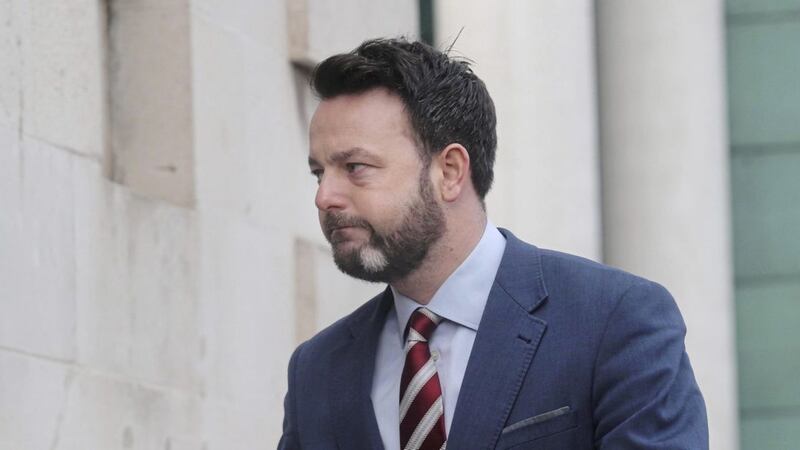MOST countries hold elections, but we prefer foregone conclusions. That, presumably, is why we are holding a sectarian census in four weeks' time. But don't knock it. Think of our elections as essential therapy for a political system based on a continual re-run of the Reformation.
What could be more liberating than walking into a polling station on a fine March morning and deciding which religion you want to vote against? Later, we can watch the election count, where theological arguments between the papacy and Martin Luther translate into votes in yet another sham fight. (Luther inevitably wins, but then he always had a pretty strong case.)
Yes, welcome to another Six County election, in which the overall result has not changed in 100 years and which is not so much an exercise in democracy, more an elaborate ritual in which sectarian prejudice is legitimately confirmed.
Oh dear, you say, what a jaundiced view of our politics. Jaundiced it may be, but is it completely inaccurate? (Well, apart from describing the election as an elaborate ritual. I should have written "depressing ritual".)
So how will the forthcoming election turn out and is there any hope that Luther or the papacy could lose a few seats to normal politics this time around?
In the green corner, the SDLP and Sinn Féin are bristling with indignation at unionism's treatment of nationalism. Sinn Féin is doing most of the bristling, probably because it has not bristled much in ten years.
(It reserved its bristling for those suggesting that Stormont was not working properly. Now it says it knew that all along. Fortunately for the leadership, the party was saved by its own grassroots.)
Sinn Féin is lucky in that events have allowed it to blame Stormont's collapse on a combination of alleged political discrimination and a proven lack of financial discrimination. That will allow a campaign of sectarian indignation (always a vote-winner) but the party will worry that it left the collapse of Stormont too late to prevent damage to its own image.
The SDLP does not yet appear to have a clear electoral message. (Maybe it could adapt a Trump slogan: "Make the SDLP great again"?) The party needs to link Sinn Féin and DUP malpractice in the public mind, to offset SF's likely boast that it, and not the SDLP opposition, brought down Stormont.
The DUP faces a huge challenge to its credibility. Yes, it stuck the boot into Sinn Féin (even though SF appeared to enjoy it) but its urban canvassers will have difficulty explaining RHI on austerity-laden doorsteps.
The party can only revert to playing the Orange card ("Protestant wood-burning boilers for a Protestant people") but Stormont's huge lack of credibility may curtail electoral turn-out to a damaging extent. That leaves the UUP, which should benefit from having distanced itself from DUP scandals, although it might lack the DUP's sectarian edge in what Arlene Foster has promised will be a "brutal" election.
So, none of the major parties can face the election with confidence. (Time to get out the flags.) Into this uncertainty comes three additional factors: Brexit, abortion and the rise of the left.
In relation to Brexit, Catholic parties want"special status" for the north. However, it is unclear whether special economic status could be achieved without special political status. In view of this week's court ruling that Stormont has no say in Brexit, special political status is unlikely, leaving nationalists apparently feeling imprisoned in the UK and opposed to wearing Brexit uniforms.
Special economic status would presumably mean British customs controls being moved from Newry to Larne. That means an election with added sectarianism.
The unionist counter-argument is likely to advocate special economic status for the north within the UK, probably in terms of additional financial support for industrial investment and infrastructure.
On the sensitive issue of abortion, Sinn Féin is more exposed than the other main parties. Its liberal attitude for a southern electorate may not be appreciated across the north.
Finally, growing contempt for Stormont may translate into support for left-wing, non-sectarian parties. The challenge of winning seats in a smaller assembly will be offset by inevitable non-sectarian support from a disgusted public.
All of this means that while the overall election result will conform to the foregone conclusion theory, some details may not be as foregone as previously. We can only hope so. After all, a new political era can begin only when an election is fought on a new political basis, which would be bad news for both sides of the Reformation argument.









